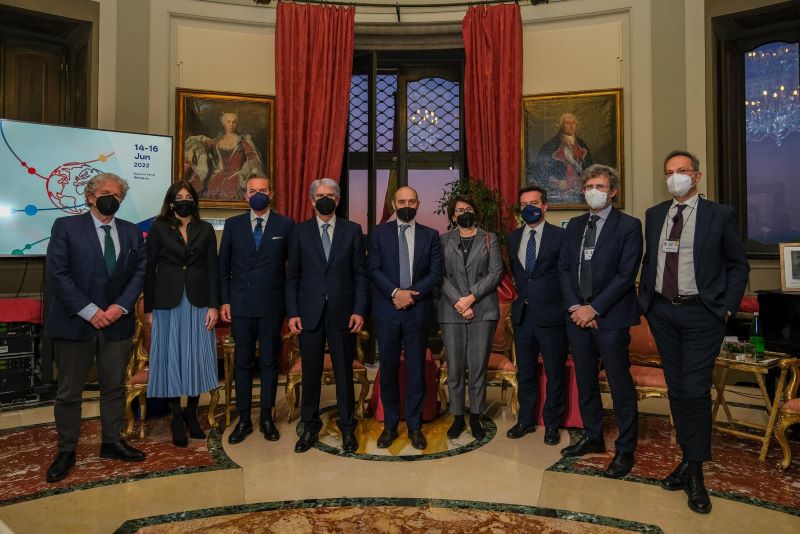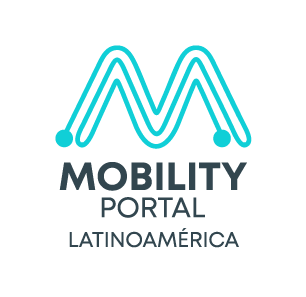Spain and Italy must take advantage of the post-pandemic recovery plans so that the boost to sustainable mobility has positive social, economic and environmental impacts, one of the goals of Global Mobility Call, which was presented on Tuesday in Rome, where it continues to expand its network of international supporters.
The presentation event took place at the Spanish Ambassador’s Residence in Italy, where the vision of Global Mobility Call was shared as a pioneering event and international benchmark whose objective is to contribute to boosting economic and social recovery after the pandemic, as well as energy resilience in the face of international shocks and to take advantage of the sustainable development opportunities presented by the European Green Pact and the NextGenerationEU funds.
The launch event was welcomed by Alfonso Dastis, Spanish Ambassador to Italy and San Marino, who stressed that «Spain and Italy have common ties and already collaborate in many areas. Some of the most representative Spanish companies are already in Italy, in the renewable energy, logistics and mobility sectors.
Then, he added: «Both in Italy and in Spain we have ambitious projects at national, regional and municipal level, where cooperation between companies, public institutions and research institutes can only help to create links that allow the development of technologies and projects for our countries and that may be of interest in third markets».
«Among them, we can mention, in Spain, the Safe, Sustainable and Connected Mobility Strategy, financed with funds from the Recovery, Transformation and Resilience Plan, and the draft Sustainable Mobility Law. And in Italy, I would like to mention the holding of the Winter Games in Milan and Cortina in 2026, a subject I had the opportunity to talk about with Deputy Minister Morelli a few months ago and about which I know that the development of cutting-edge and intelligent infrastructures is planned,» Dastis added.
The Deputy Minister for Infrastructure and Sustainable Mobility of the Italian Government, Alessandro Morelli, then stated that «the goal of sustainable mobility is ambitious and culturally high, but it can only be achieved gradually, taking into account the specificities of each economic system in question».
For this reason, he suggested the need to promote alliances between partner countries such as Spain and Italy in order to be more competitive in raw materials and basic components for the production of vehicles and new generation structures.
Eduardo López Puertas, Director General of IFEMA MADRID, presented the first edition of Global Mobility Call, pointing out that sustainable mobility has the potential to transform millions of people, communities, companies, sectors and countries around the world.
It represents a market according to studies by the Spanish Association of Automobile Manufacturers, ANFAC, which, by 2040, will entail an investment for all sectors involved of 54 billion euros, 5% of Spain’s annual GDP, which is also an opportunity for Italian companies.
«Global Mobility Call opens an excellent challenge to the Italian and international business sector to join this powerful initiative that will lead to the strengthening of professional networks and find like-minded partners to develop new projects; and that will also give rise to the possibility of exploring new inspiring technologies, new business models and new value chains,» said López-Puertas.
«Decarbonising mobility to accelerate green recovery».
After the first part of the Spanish-Italian institutional participation, the round table «Decarbonising mobility to accelerate green recovery» was held, in which Italian institutional and business leaders shared their vision of the development of sustainable mobility in the current economic and social context.
Elisabetta Ripa, CEO Enel X Way, highlighted her company’s role in favour of electric mobility «as the simplest and most natural way to contribute to making cities increasingly cleaner, more liveable, quieter and more modern», and that «we want to extend last-mile freight transport in urban centres, navigation or vertical take-off flight systems to new market segments».
Gianluca Landolina, CEO Cellnex Italia, emphasised that «today’s world is increasingly moving towards a widespread culture of sustainability that gradually permeates all aspects of our private and professional lives».
He continued: «Respect for the environment, for the individual and for profit, in its most virtuous balance, which we call ‘sustainability’, have courageously permeated the culture of mobility, gradually leading to a reprogramming of the ways in which we move around the world,» he said.
«At the heart of all this, telecoms operators also have a key role to play. With 5G and new IoT networks in general, it will be possible to enable important new services that will transform our cities into ‘smart cities’, making them safer, more sustainable and closer to citizens’ needs,» commented Landonlina.
Valentino Sevino, Director General of the Agency for Mobility, Environment and Territory of Milan (AMAT), pointed out that «cities are the catalyst for mobility and infrastructure for electric charging, so local administrations have an important role in defining and studying policies linked to sustainable mobility, which in the case of Milan has all been realised since November 2018».
Gianmarco Giorda, director general of the National Association of the Automotive Industry (ANFIA), described it as «fully committed to sustainable mobility, participating in the transition towards the zero-emission goal».
«Italian companies are now facing a challenging process of productive reconversion that involves huge investments in R&D and training to maintain their competitiveness in the global market,» he said.
He went on to explain: «To be in a position to achieve these objectives and to manage and accelerate the transformation, it is necessary to work on the development of infrastructures for electric cars, vans, trucks and buses, to support the demand for green mobility with purchase incentives for electric and plug-in cars, and to define precise industrial policy tools to accompany the production chain.
We also believe that an appropriate timetable should be set for phasing out internal combustion engine technologies in order to safeguard jobs and added value. Not only electric but also specific technologies can make a major contribution to decarbonisation (e.g. synthetic fuels, biofuels, hydrogen internal combustion engine vehicles) before reaching the goal of zero-emission mobility,» she concluded.
The moderator of the round table, Eleonora Rizutto, President of the Italian Association for the Development of the Circular Economy, stated that «sustainable mobility is an essential pillar of the green revolution that society as a whole needs: the use of environmentally friendly alternatives for daily commuting leads to a considerable reduction of the negative externalities associated with the use of traditional means of transport».
With this in mind, AISEC (Italian Association for the Development of the Circular Economy) facilitates all kinds of innovative partnerships, thus also nurturing potential circular economy projects.»
Global Mobility Call, will be held from 14-16 June in Madrid, organised by IFEMA MADRID and Smobhub, under the auspices of the Ministry of Transport, Mobility and Urban Agenda (Mitma).
The global congress will bring together more than 7,000 international leaders in their respective sectors to promote policies and initiatives on sustainable mobility and attract support and investment for new projects at a key moment when a major transformation is required for economic and social recovery after the pandemic.





















